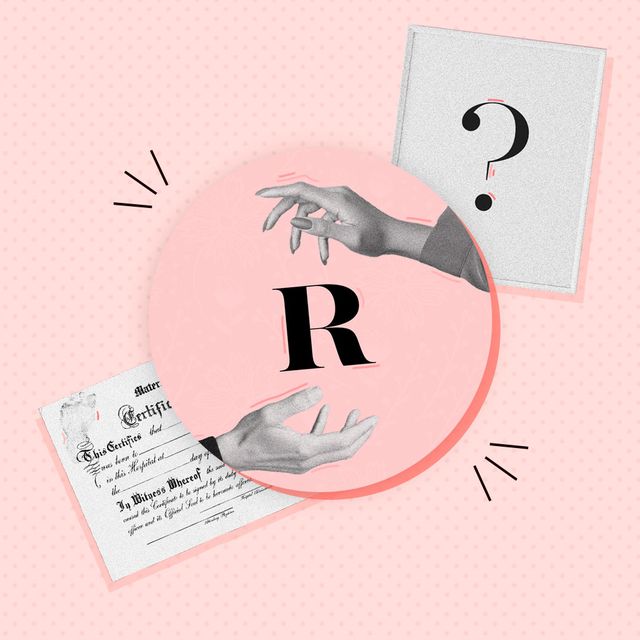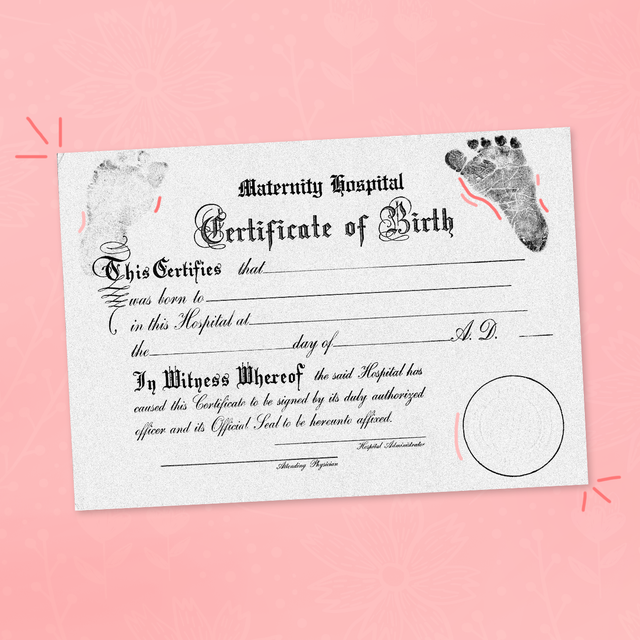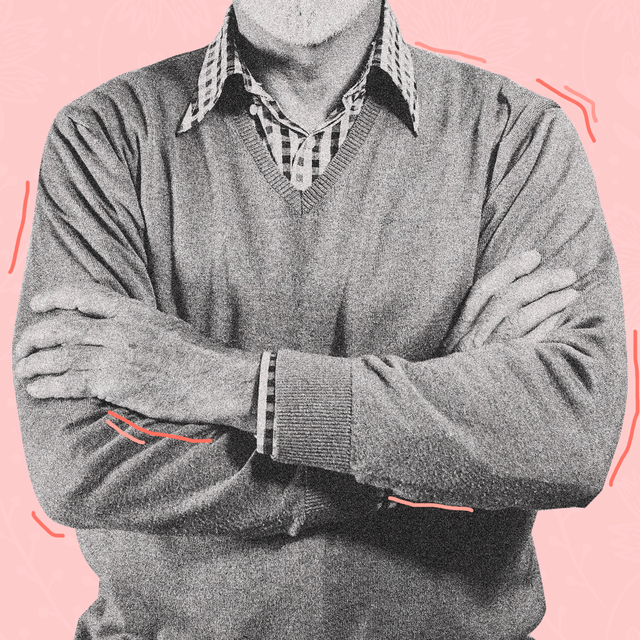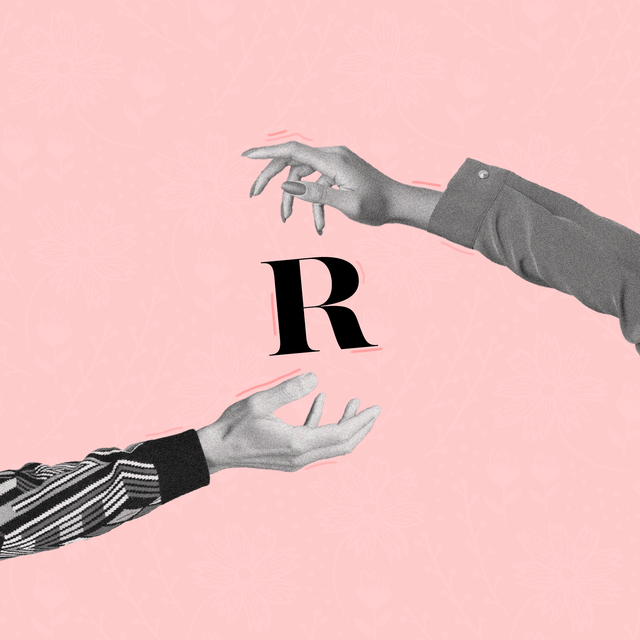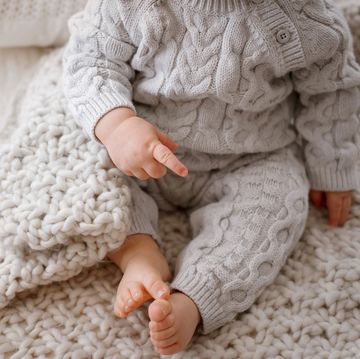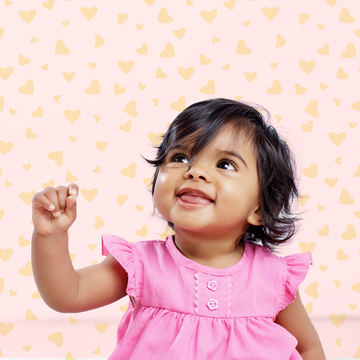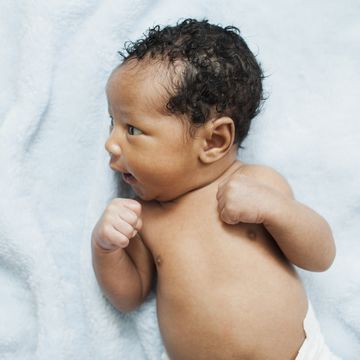When Amy McNamara heard her newborn granddaughter’s name, there was a moment of stunned silence. Certainly, “Grace” was a pretty name.
“But we immediately thought of the dog,” McNamara said.
Grace had been the name of the family’s Portuguese water dog, a beloved pet for 13 years. Before the grandparents uttered a word, the baby’s mother explained, “We think we need more grace in the world.” The grandparents were charmed, and now visit what they call “Graceland” whenever they can.
To the McNamaras, at least “Grace” was a “real name.” Ask the grandparents of “Crumpet,” “Primrose Bean,” “$helly,” “Oak,” “Moxx,” and “Binx” (yes, these are all real) what they think. They’ll tell you, but privately only, not willing to risk family relationships.
The baby name “KVIIIyn" blew up one online grandparent chat room, causing one woman to “lament the state of the world” over the choice. In an online post, KVIIIyn’s mother explained, “I’ve always loved the name Kaitlyn but hated how popular it was. So when I found out I was having a girl, my husband suggested we replace the ‘ait’ with the Roman numeral symbol for eight! Now our daughter is truly unique.”
KVIIIyn’s mother hits on the biggest generational divide in baby naming — today’s trend of finding a special, unique baby name — something that will make the child stand out from the rest. When today’s grandparents were naming their kids, the general idea was that kids shouldn’t be burdened with an unusual name, or one that people would have difficulty in spelling or saying.
In a recent survey of 2,000 grandparents in Australia, one in five admitted they hate, or have hated, their grandchild’s name. Some 28% found the name too ugly, 17% too weird, and 11% too old-fashioned. Two percent of grandparents have become alienated from their children over the name issue and six percent claimed to have gotten “sick” over it.
The rebuke of “old fashioned” seems ironic, but in the world of baby-naming, there seems to a 100-year-old rule, with certain names regaining popularity after a century. This can be tough on great-grandmothers, who have their own associations with certain names.
“Sophie? Please don’t name her that! How can you do this to me?” Sydney Kase Glickstein’s mother-in-law wailed.
“My husband’s mother came from a very typical hard-core Jewish background,” Kase Glickstein explains. “To her, that name connoted a very heavy-set, crude woman — a Sophie Tucker.”
The name “Tallulah” caused consternation for another grandmother: “The connotations of the name — of a stripper/prostitute — that I can’t imagine using it to a tiny innocent baby.”
Another complicating factor for grandparents is cultural. A Pew study reveals that one in six American newlyweds marry people of a different race or ethnicity. Lizzy Schelawala (née Schulzinger) found herself reviewing a list of “100 Indian Names That Americans Can Say” during her pregnancy. Their baby would be of Indian, Polish, Hungarian, Austrian, and English ancestry. The name that Lizzy, a flaming redhead, and her husband Amit, who is of Indian heritage, finally chose for their daughter — Nisha — means “night” in Sanskrit. “I had worried that my mom was going to say, ‘Why is there no ‘Catherine’ on the list?’" Schelawala admits, "but it never came out of her mouth.”
Other grandparents have more trouble crossing an international divide. “Tadhg?” Robert Cummings asked when he learned his new grandson’s name via email. “We looked at that and said, ‘How do you pronounce it? Ta-da?'” Cummings’s daughter married an Irishman, and Tadhg is an Irish Gaelic name — which for the record, is pronounced “Tig,” like the first part of “tiger.”
Even family names can cause grandparents agita. Kristina Lindbergh is the granddaughter of renowned aviator Charles Lindbergh, who in 1927 made the first non-stop flight from New York to Paris, transforming him from an unknown mail pilot to a national hero and reluctant celebrity. Yet Kristina was taken aback by her granddaughter’s name: “Charley” (which is not short for Charlotte).
To Kristina, the name was cursed. The legacy of Kristina’s grandfather was later tarnished when he was accused (many say unfairly) of Nazi sympathies. In 1932, in a case called “The Crime of the Century” the pilot’s baby son — also named Charles — was kidnapped from his crib and murdered. Another Charles in the family committed suicide.
“I always thought the Lindbergh curse was related to the name Charles,” says Kristina, who is writing a family memoir. “When they told us they were going to name the baby Charley, I thought, ‘my grandfather, his father, my uncle are all Charles — and that didn’t end well.'”
Now, Kristina reports, “Charley is the love of my life.” As for the name, she says, “These kids are over this stupid curse thing. They're not going to let it bother them, and maybe they’ll change the voodoo.”
Kase Glickstein’s mother-in-law also came around to “Sophie” — especially after Bette Midler gave the name to her daughter. The Cummings nickname for their grandson is “Tigger.” (No word from KVIIIyn’s grandparents.)
Grandparent expert Sally Tannen has some advice on baby names: keep your mouth shut. “Navigating your relationship with your adult child is really about holding your tongue,” she says. Tannen is director of both the Parenting Center and the Grandparents Center at the 92nd Street Y in New York City. She holds separate support groups for new parents and new grandparents, and hears complaints from both generations over baby names.
Tannen reminds grandparents that new moms tends to be hyper-sensitive and hear everything through the lens of being criticized. Comments like “I’ve never heard that one!” don’t help. To grandparents, she gives basic parenting advice: pick your battles. “The name is something you may hate, but it’s not worth making a thing about.”
After all, like Kristina Lindbergh says, grandkids have a habit of making their own voodoo. Once the baby is born, most grandparents begin to associate the objectionable name to the child itself — and forget why they disliked it in the first place.


